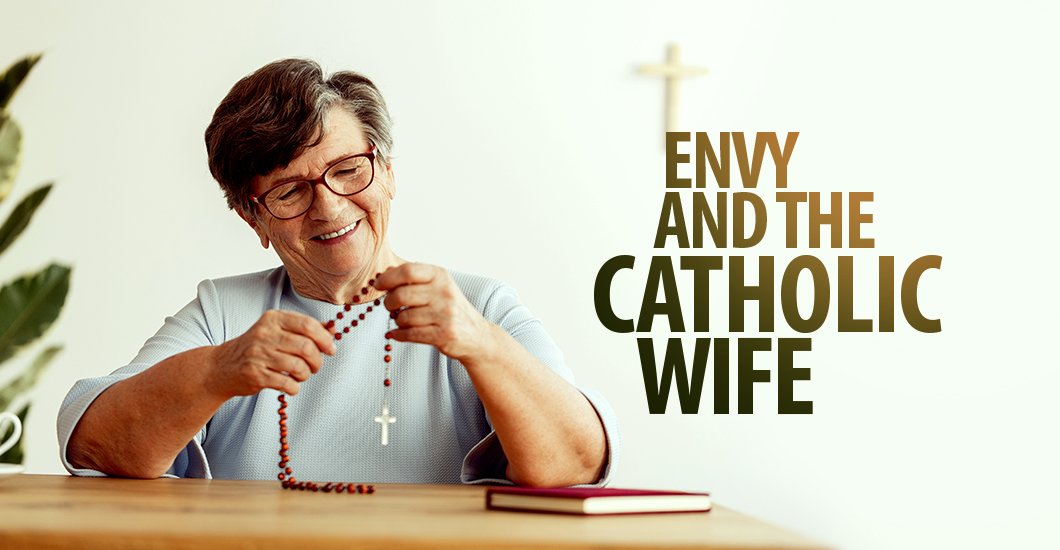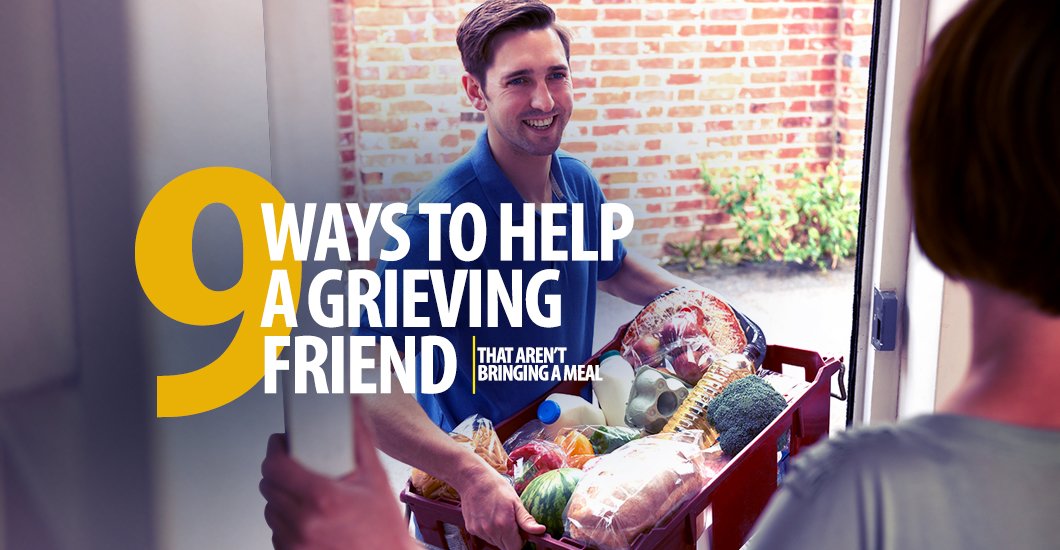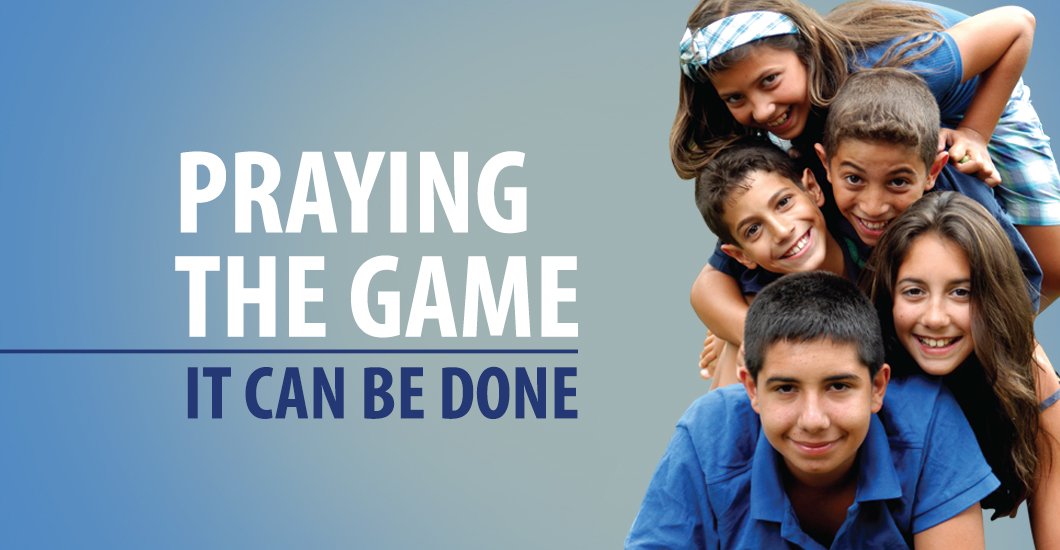- Latest articles

Our priest spoke about envy in his homily yesterday. He said he suffers with it from time to time. And the truth is, so do I.
It is such an ugly thing to admit. It is embarrassing. And, it is destructive. It can just devour. It steals from us joy, peace, and gratitude. We cannot be grateful for something while also being envious. The two seem to cancel each other out.
So I try—my husband and I—both, to be intentional about what we are grateful for each day. We share three things that we are grateful for, usually around dinnertime. It was hard at first. But it has become easier the more we do it. And with each thing we mention with gratitude that day, the envy of another thing dissipates.
Something else that helps me with envy: the realization that we all carry a cross. Many are invisible, even some of mine. And yet, they are still there. If you get to know a person well enough, you get to eventually see their crosses too. And so, getting to know the person I am envious of; that also quiets the envy.
I think envy is a thing of superficial reality; not of what truly exists. Envy is the pseudo-reality of what I create without much interaction; not the reality of what I get to know when I listen, when I get close, when I get to know another. And it is a cross that I create for myself that does not bear any fruit or grace. It is dead-weight.
When we see someone else with their many blessings, we have to remind ourselves that there are many things happening outside of that picture that we do not see. And while someone may have the blessings we long for, they may also be carrying a cross that would break our backs. And vice versa.
God is good. God is generous. He loves us individually. Personally. We are unrepeatable beings to Him. We are precious to Him. And so He gives. He gives us what is good for us, and He gives others what is good for them. He does not give it to them instead of to us. He does not choose to give it to them and then runs out of the good for us. No, He looks at us, lovingly, as if we are the only one He sees when He casts His eyes on us. And He cares for us and for what our hearts desire.
And the truth is that we are all so undeserving, anyhow, of those blessings. Do you think so? This too helps me with envy–blessings are not rights, they are not goods that we earn with deeds or even with faith. We do not get them when we become deserving of them as if it is a checkbox to mark–some kind of accomplishment or recognition. I do not even know necessarily what they are, but I do know that even my crosses have been a blessing for me at times. And I know that some others’ blessings have been their burdens at times too.
I know that these experiences are not so isolated. They are the shared experience of this life. And that, also, is something that we are called to do with both our blessings and our burdens: to share them. Again, this helps close the door on envy.
To share our blessings: praise God. To share our blessings and our burdens: raise another one to God. Share them so that we can ask others to lift us up to Him too.
If you struggle with envy, I want you to know that you are not alone, and that other Catholic and Christian women struggle with this this too. And at times, that is me. I hope that we can help each other through those times with the reminder that there is always more to see, more to know, and more to understand than what we have put together in our mind. And, that God absolutely loves us each of us. Even when we cannot fathom it.
'
Last summer, our family was living abroad when tragedy struck: My six-year-old daughter was seriously injured in a fall and had to spend several days in a German hospital. Being so far from the comfort of family and friends, I longed for their support. Many people asked my husband and me what they could do to help us during such a difficult time since popping over with a casserole was out of the question.
In the midst of my own tough situation, I began to think outside the box about ways to extend loving care to a friend going through a difficult time, whether an unexpected injury, debilitating illness, or grief following loss. There were so many comforts large and small I would have welcomed after my daughter’s injury if only friends had been nearby to offer them. Though there’s nothing wrong with bringing a home-cooked meal, here are nine other thoughtful ways to offer support.
1. Babysit
Children can sometimes be a comfort in the midst of grief, but they can also exacerbate a difficult situation. Taking a friend’s kids off their hands for awhile may alleviate stress, allowing them much needed time and space.
2. Make a mixtape
Yep, I said mixtape. The days of actual cassettes may be long gone, but the concept of the perfect playlist lives on. Music heals. When my daughter was injured, if I had known a friend had carefully selected songs for my comfort and consolation, I would have clung to them like an anchor for my soul. You can easily create a playlist and share it with a friend on Spotify, iTunes, or Pandora.
3. Run errands
Get the car washed, go to the post office, pick-up prescriptions at the drugstore. Who could not use help with these things even in everyday life? The unpleasant surprise of tough times throws us off, muddying up our routines. Getting assistance with the minutiae of daily tasks could sure take a load off.
4. Listen without judgment
In the midst of a recent family crisis, I received a text from a friend. “If you need to talk without any judgment about your situation, let me know.” Even though this friend and I are not that close, her offer of a safe listening ear allowed me the cathartic space to vent. Sometimes, all we need to feel better is the ability to be fully honest about our situation.
5. Clean
Grief saps energy as completely as any physical ailment. The last thing a person in crisis wants or needs to think about is mustering the oomph to clean house. You may find a grieving friend initially resists your offer to clean—it takes some humility to allow others to see our mess—but once accepted, this act of service can provide enormous emotional and practical relief.
6. Provide groceries or household supplies
Dinner is always welcome, but there happen to be two other meals most people eat each day, not to mention household items that cannot go neglected for too long. Bringing groceries for breakfast and lunch or supplies like paper plates, toothpaste, or toilet paper might actually be more welcome to someone experiencing grief than dinner delivery.
7. Put together a care package
In addition to helping out with the basics of food and supplies, a thoughtful care package goes above and beyond to offer TLC. Make self-care easy for your friend by putting together a gift basket of comfort items like her favorite scented lotion or his favorite aftershave, warm socks, or a book you have found helpful in sorrowful times.
8. Take them out (or in)
Years ago, after I suffered a miscarriage, a group of my friends surprised me by showing up at my house and whisking me out to a nice dinner. My first reaction was one of aggravation—I wanted to huddle in my house with my grief—but after a couple of hours out with friends, I found I truly did feel better. Getting out for awhile can take us away from the world of hurt we inhabit in our minds. Alternatively, if your friend is not up for going out, perhaps they could join you for a good movie or cup of coffee at their place or yours.
9. Give a spiritual bouquet or place them on a prayer chain (and pray with them yourself)
A spiritual bouquet consists of a card that lists spiritual action being taken for the recipient, such as the number of Masses attended or rosaries prayed on behalf of the grieving person. What a beautiful gift to know others are regularly interceding for us! Similarly, placing a friend on one (or more) prayer chains ensures that they will be lifted up in prayer by many others. Churches, ministry groups, and even Christian TV and radio stations often have a system in place for submitting requests that others commit to pray for. Do not know of any offhand? Go online to find prayer chains anyone can add to. And of course, praying with and for your friend in person provides deep comfort and peace.
From my own experiences, I have learned that while the standard “Please let me know if there’s anything I can do” means well, concrete action provides so much more assistance. When you know a friend is laid low in the mire of grief or despair, do not wait for their call. Take action. Step in. Show up. Whether it is bringing a meal or doing something less orthodox, any practical help will be welcomed with immense gratitude.
'
I have been helping my friend, Susan, with a book she is working on about Christian moms and dealing with anger. Out of these conversations, I realized that overcoming our own issues in managing our tempers, can also give us a blueprint to help our kids. My goal? To one day not start my confession with, “Bless me Father, for I have sinned. It’s been a few weeks since my last confession and, oh my goodness, my temper…” We can demonstrate to our kids—by our own management of anger—how to manage theirs.
Preach It: Help your child to find a scripture passage to pray that encourages them. Perhaps the anger they are dealing with is really rooted in fear or anxiety. “Be not afraid” appears in Sacred Scripture 365 times; let them know that they can pray this to themselves to overcome fear. ” , don’t be afraid:’ Let your kids hear you do the same. I can often be heard saying, “For God did not give us a spirit of fear, but of power, love and self-control:’ (2 Timothy 1:7) This is a good reminder for me to act in love and self-control rather than anger.
Teach It: We can also use language and tools to help them be proactive rather than reactive. I used to ask my kids, “What color is your anger?” If parents defuse the situation and then provide an outlet (for example, have them draw what they feel) they will learn that anger is not wrong; it just needs to be managed well.
Model It: Express our own anger in words rather than actions: “I feel so angry when someone steals my parking space, but I remember to breathe and (reframe my thinking) remind myself that I am blessed to own a car that requires a parking space:’
Explain and Act on It: Even Jesus got upset and angry at injustice (flipping over the tables in the Temple). There are reasons to be angry; however, we must use that righteous anger to move us to work for good. The injustice of abortion is a great example. We can use that emotion to participate in 40 days for prayer against abortion or the March for Life.
If we look at overcoming these strong emotions as a way to strengthen our faith and help our kids, maybe we can be a little more forgiving of ourselves in the process. Meanwhile, I am running off to confession, because I need a little more grace.
'
Having overcome a promiscuous past and knowing that I would soon be intimate with my husband for the very first time on our wedding night, I felt like I had attained success over sexual sin in my life. For the first time since becoming sexually active at the age of thirteen, I felt like I was entering a physical relationship that God would approve of. However, it was not until we started practicing Natural Family Planning (NFP), eight years into our marriage, that I really understood that the beginning of our marriage was still tainted by lust. Marriage does not cure sexual sin!
We became an instant blended family so it was important to us to ensure that our children did not feel like we were replacing them with each other. We knew that we wanted at least one child between us, but we wanted to wait a year to allow time for our little patchwork family to adjust.
Leading up to our engagement a friend recommended that I get on the pill so that if a proposal came sooner than later, the pill would have time to take effect in my body before our wedding, as we knew we wanted a short engagement. It made sense to me, so I made an appointment and started taking a low dose contraceptive. I made sure to ask my doctor all kinds of questions to ensure that I was on a pill that would not harm a baby if ‘one snuck through.’ At this point in my life, I was so ignorant as to how contraceptives worked, and I was completely oblivious on how they can make one’s womb a ‘hostile environment’ until I found myself experiencing a miscarriage just four months into my marriage.
With adjusting to the unique circumstances of our instant family, as well as entering into a difficult season of deep personal healing from my past of trauma and abuse, I just stuffed this experience down and kept on moving through life. Two months shy of our first anniversary, I was informed for the first time that contraceptives have abortifacient qualities. I shared this information with my husband and we decided together that we would never again place another one of our children in harm’s way through contraceptives.
We went on to have our first and only child together and after a very difficult pregnancy. I had a tubal ligation that I regretted soon after. The combination of ignorance and fear can lead us into some very poor choices and my husband and I did not understand the physical and spiritual consequences we would soon face.
After my surgery, there was no longer a ‘fear’ of pregnancy but what I could not see was that my marriage was damaged and flawed. We took our most private moments together for granted and we did not prioritize the limited time we had to connect in deeper ways. I have chalked this type of damage up to what I call ‘Marital Fornication,’ that is, sexual relations in a marriage that are driven by lust, lacking self-control, and which exclude God.
These types of relations are simply physical. They lack intimacy, disrespect our fertility, and can even mask serious health issues in women. Our fertility is the road map to our health and if we cannot track our ovulation (or lack thereof) then how do we really know if we are healthy?
Before we get married, it seems there is often so much emphasis placed upon chastity and self-control, then suddenly when we get married that all goes out the window! That is how it was in my marriage and in my specific instance. I was the aggressor. I had spent ten years of my life giving my body away to uncommitted men who used and abused me, and I had no idea what true intimacy was.
After experiencing my second unplanned pregnancy from a second father, I chose abstinence. Abortion would never be an option for me and having more children from uncommitted men was no longer an option either so I had to change my lifestyle. It proved to be all surface changes though once I got married, because I immediately resumed the same type of behavior as I had before since it was now ‘allowed.’
I was no longer sinning, or so I thought. Even though our first time was on our wedding night, our most private moments together as a husband and wife were no different than when I had hooked up with random guys; it was simply lust-driven monogamous sex. There were times when my husband expressed that he just wanted to hold me and I would feel rejected and unwanted. What my husband was trying to experience with me was intimacy and closeness and I had no idea what that looked or felt like. All I had ever known was lust, so all I could give him was marital fornication.
As I became more involved in the Prolife Movement I learned more about NFP and I began to share my own experiences of losing my son to miscarriage while on the pill and how I had destroyed my fertility through surgery out of fear and ignorance. Even though I knew I was sharing the truth, I felt like a hypocrite. Who was I to point people toward Natural Family Planning when I did not even practice it myself? My heart began to feel more conflicted as I could no longer play the ignorance card. I got it, it made so much sense but it was too late for me!
Or was it?
One day I decided that I wanted to become an NFP instructor so that I could help other women avoid my past regrets. I had also read Christopher West’s book “Theology of the Body for Beginners” and my eyes and heart were opened to see the truth about what intimacy is and is not. I found so much healing through those pages.
About two weeks before my NFP course, I was lying in bed and felt God whisper in my ear that I would find peace with my past if I practiced NFP as though my fertility was intact and we were postponing pregnancy. It did not make sense to me but I told my husband and he readily agreed. I went on to become an NFP instructor and learned so much. After we started practicing NFP by the official rules it was like a heavy weight was lifted from our marriage. There was no more pressure or assumptions for either of us. My chart tells us if intimacy is an option on any given night and it is now anticipated and longed for in ways it never was before NFP.
And I can tell you that, we get the kids in bed on time and put our phones and projects down early when we have a green light! On nights when we know it is not an option, neither of us feel guilty for staying up late in the other room working on projects. Even on nights when we have a green light, we still do not place an expectation on each other. We would rather wait until we are both able to unplug and totally focus on each other than settle for just a physical encounter. NFP has healed our marriage in ways that we did not even know were damaged for all those years, and our ability to communicate has drastically improved as well.
We no longer engage with one another in a lustful manner and our intimate life has grown so deep through self-control, respect for one another’s fertility, and a desire to please God above our own physical gratification. Although we spent many years missing out on the blessings that Natural Family Planning had to offer our marriage, I know that my husband and I will never again settle for lust and temporal fulfillment when we know the lasting fulfillment that is available through intentional and unitive intimacy.
I hope that sharing our experience with NFP will inspire others to give it a chance. It is not simply about planning or postponing pregnancies, it is a pro-health lifestyle that also embraces the beauty of intimacy that God desires us to have in our marriages.
'
Building a strong wall was a key point of discussion during the last presidential election in the United States of America, with one side unwavering in their stance for building a border wall between Mexico and the United States in order to thwart illegal immigration.
The whole discussion of walls made me reflect on the urgency of rebuilding the spiritual walls in our society. Losing the idea of sacredness, dignity of human life, and the value of family has led us to a secular neo-pagan culture. Walls between good and evil, sacred and secular, God and mammon, intrinsically valuable and instrumentally valuable are broken. Moral walls are terribly slackened, more than ever before. The spiritual walls in the U.S. have nearly crumbled, leaving but a stony trace of a fortress that once upheld the nation’s founding ideals. The Founding Fathers emphasized that the constitutional republic depended upon a vigorous religious society: “Our Constitution was made only for a moral and religious people,” said John Adams. “It is wholly inadequate to the government of any other.” Our age-old value based foundations are weakened by the principalities of radical secularism and value degradation.
As He did in Nehemiah’s day, the Lord might extend His mercy to rebuild those walls. This could be realized only to a repenting, praying, and testifying people. When the Prophet Nehemiah surveyed Jerusalem, he saw the ruins of a city destroyed by the Babylonians. Just as Jerusalem was in physical ruins, our world continues on a path of spiritual ruin. What can we learn from Nehemiah and the rebuilding of the wall of Jerusalem? What steps should we be taking to rebuild our nations? There are three steps Nehemiah took to rebuild the walls that had crumbled after the invasion.
First, he began with prayer, fasting, and mourning. Nehemiah prayed for himself, he prayed for his nation, and he even confessed the sins of the forefathers who had brought destruction to Jerusalem. The burden he had for his city was very clear. Rebuilding the walls was a physical project. Yet at the end of the day, it was only God who could complete it. Nehemiah was a desperate man seeking the Lord.
Are you desperate when you see the Church largely quit the practice of consistent, deep, pleading community prayer? Do not let the immensity of the needs of the Church paralyze you so that you do not do anything. God wants us to feel others’ burdens, but then He wants us to roll that burden back to Him, remembering that it is not our power, but His power that redeems. In thirteen chapters, Nehemiah says “I prayed to the Lord” eleven times.
Secondly, Nehemiah invited other people to join him. He said, “Let’s rise up and build the wall” (2:18). God must have shared His burden with many people. To find and gather them for a single goal is yet another step in building a wall of the Lord. Nehemiah had a good vision about what must be done and how people must be gathered for this purpose. A good vision will always be carried to fruition by people of good mind. We must be concerned about the things that God is concerned about.
The priests were the first to volunteer. The people of God, guided by the leaders of the Church, are to lead the way. We are the gatekeepers for the people whom God entrusts to us. Every believer has a unique role. The nation of Poland can never forget the name of Saint Faustina Kowalska. Among many great leaders in their country, she was a humble instrument in making modern Poland a God-fearing one. She was an ordinary religious. However, she had a deep sorrow about the people in her country. She was not a politically or socially influential woman, but she had a zealous heart for the Lord, burden of her country, and a readiness to do whatever was required. Who can resist the wrath of God? Only a person with a humble heart who fears God. The Lord anointed Saint Faustina by revealing the great prayer of the Chaplet of Divine Mercy, which always shatters the works of evil powers.
Finally, opposition did not distract the Prophet Nehemiah from his mission. Get ready in facing oppositions from within and without if you want to do something unique for the Lord. The hostility you face from your inner circle, say for instance, from your family, friends and other members of the community, will be more painful than from enemies. You will find new tactics from the enemy who will try to put you down and withdraw you from the goal. If you have a Spirit-guided vision, no one can distract you from your journey. There will be oppositions and challenges, pains and sorrows, but if you know why others suffer, you know how they suffer.
We want God to come in great power to convert people, but the Bible stresses the need for personal evangelism. Our nations’ crumbling walls cannot be rebuilt until each Christian works as an authentic representative of Christ wherever He has planted him or her.
The vision of making spiritual walls get prolonged and delayed since Christians are found to be shy in witnessing the Lord in their areas of mission, and fear to raise their voices to fight against the warriors of the culture of death. Lovingly and winsomely, we must share the Gospel message through our lips and testify to its transformative power by our lives. Unless that happens, our nation’s spiritual walls will not be rebuilt.
'
We have all experienced that feeling: a sinking in our stomach, a lump in our throat, tears springing to our eyes. We have been let down, disappointed, rejected. maybe we have been tempted to think, “I am never putting myself in that situation again,” “I never want to get hurt again” or “It is not worth it.”
Vulnerability is dangerous! We open ourselves up—perhaps in a friendship, a new relationship, an opportunity in ministry or in the workplace—with the risk of being let down. Sometimes, it feels like there is no point in making ourselves vulnerable. Is it not safer, easier, to keep our hearts closed and never get hurt?
Not too long ago, I was in a situation almost exactly like one I have described. I opened my heart up, only to feel rejected. I wondered why God would let me experience this horrible feeling. I thought it would be safer to close up my heart.
1. S. Lewis tells us, “To love at all is to be vulnerable. Love anything and your heart will be wrung and possibly broken. If you want to be sure of keeping it intact, you must give it to no one, not even an animal. Wrap it carefully round with hobbies and little luxuries; avoid all entanglements. Lock it up safe in the casket or coffin of your selfishness. But in that casket, safe, dark, motionless, airless, it will change. It will not be broken: it will become unbreakable, impenetrable and irredeemable.”
Vulnerable like Christ
To love at all is to be vulnerable. To love and live as Christ did, we have to take the step. We have to open our hearts. Jesus is not asking us to deliberately hurt ourselves. If you have been in a relationship of abuse and mistreatment, He is not calling you to continually put yourself back into that situation. Do not confide in a friend who is known for spreading gossip. Perhaps there is a friend with whom you have been waiting to confide but you were stopped by your pride. Maybe you have an opportunity to share your gifts in ministry, but you hesitate for fear of not being good enough. God may be inviting you into a deeper relationship with someone, yet your past wounds are stopping you from taking the leap.
Christ made Himself vulnerable to us. Look to the Cross! That is the ultimate picture of vulnerability, the ultimate picture of love. If we want to be like Him, we must imitate His vulnerability. We have to lay down our lives. How can we do this if we are constantly worried about getting hurt?
Vulnerable to Christ
Jesus Christ is calling us into a relationship with Himself. Have we entered fully into this relationship? Or are we holding back, hiding our hearts from the One who loves us, out of fear?
Many times, I have thought to myself, “I cannot give my life to Jesus. He will take something away from me: this relationship or that comfort, these goals and ambitions.” But He is not a God who takes away. He has already given us everything on the Cross and in the Eucharist. He is asking each of us to be vulnerable with Him in prayer. This may seem impossible at first. But He is listening. He knows our hearts. Tell Him you are afraid to open yourself up to Him. Share with Him your insecurities, your hurts, your anxieties. Offer Him your life—ask Him to help you offer it, day by day, hour by hour and moment by moment.
Vulnerable with Christ
It can be overwhelming to give of ourselves. We can feel exhausted, mentally and emotionally. That little voice inside of us pops up to whisper that it would be easier to lock our hearts away and avoid the risk of pain or rejection. yet, we are not alone; Jesus walks with us. He, also, experienced pain and rejection. His closest friends abandoned Him and the people He came to save crucified Him. He experienced sorrow and heartbreak. He wept at the death of His friend Lazarus and He weeps at our pain, as well. He knows. He has experienced all of this. That is why He came to earth—to intimately experience our unique human lives and sufferings. We do not have a God who is far off, examining us from a distance. We have a God who is united with us.
Vulnerability may sometimes lead us to suffering and pain. Offer that pain to Jesus Christ. Nail it to the Cross. He will transform it and make it redemptive.
Thank God that we have vulnerable hearts! A vulnerable heart is a heart for relationship, a heart for giving and loving. It is the key to living life in and with Christ. By opening ourselves to Him and to the people He places in our lives, we give the Holy Spirit the chance to work in us and through us to bring about the glory of God.
'
I have watched all five of my kids play sports of all kinds for more than three decades. I cannot count the number of meets, matches and games I have faithfully attended. Whether it has been sitting on the sidelines in freezing rain, in the bleachers on a 90-degree summer day or putting up with the loud rap music they play for warm-ups, my heart’s desire as a mom to be present always trumped my physical or mental discomforts.
What I have learned in later years is the beautiful art I call “praying the game.” It is an art because there is huge battle with noise and distraction and one must find a way to connect with God even though there is so much going on. Initially, we cannot believe this sporting event could really be a place of prayer. It takes some discipline and practice to really master the art of it, but I have found it truly rewarding! Here are some ways that, while my kids play the game, I “pray the game.”
First of all, I recognize that God is present in each of the young athletes. He is in every heart, mind, soul and body that He has created. He loves us all the same. (you mean He loves those archenemy rival people as well? Indeed He does.) I see in my mind’s eye the guardian angel of every player and spend some time asking them to protect all the kids. (I have actually pictured guardian angels flying over each player as he or she moves about the field or court, which makes for some good mental creativity! It is actually a beautiful sight!) I ask that the athletes will not only be physically unharmed but also that if, in some way, the Lord wants to use the game as an opportunity to help them on the way of salvation, He would do that. Perhaps they must temper their anger or learn how to take a bad call. Maybe a coach takes them out of the game or they miss the winning shot. Maybe, if they are the talented ones on the team and are being showered with abundant praises, they will need to exercise humility. Whatever it is, God can use all these things to teach them about the real meaning of life and its ultimate goal of union with Him in heaven.
Second, I recognize God’s presence in the other parents and spectators around me. No doubt, we end up in conversations with friends and that can be part of the fun for us. We catch up, share stories and maybe complain about the refs together. I find that listening more and talking less here can be key. I pray for the needs that my friends share or the hopes and dreams they might have. An inner prayer might go something like this, “Lord, you see how my friend here is hurting and you see how much she loves her family. Please touch her heart today and let her know that you are near. Let something happen today that might help her see your hand in all the events of her life. Console her in her heartaches as a mom and give her grace. Mother Mary, give her peace.” Depending on how the Spirit leads, I might even sense God wants to use me to share a bit of the faith … how God has worked in my life lately or how I believe He can bring us true joy.
The last way I pray the game is to try to see the whole event as God does. I imagine Him rejoicing in the love and gathering of families. I imagine Him rejoicing in the human body and its capabilities in the gift of playing a sport. I must pause here and say I truly marvel at the ways the body can coordinate its movements, its speed and agility and its strength in the battle. A swimmer doing the butterfly stroke is poetry in motion. The lengths to which a body speeds and stretches out to make the diving catch in baseball is amazing. This, of course, cannot be separated from the soul within! God sees the drive of the heart, the discipline of the mind and the tenacity of the human spirit at work among His people. Though I do think He grieves that He is not remembered or thanked often for these gifts, I know He still loves and because He is so good He gives the athletes the joy of exercising those gifts in the game. I pray that God will help all of us present in the big crowd to come to an understanding one day that this longing we all have for communion, and for winning, is really based on the human heart’s longing for heaven. We will not worship a sport or the players but the one true God. We will gather to see that the enemy of evil and death has been conquered. With God on our side, we will sing, as they often do at games, “We are the champions.”
'
‘I will bless the Lord who gives me counsel, who even at night directs my heart.’ —Psalms 16:7
For decades I have called myself a morning person, an early bird. I am drawn to the light for so many reasons. It reveals truth with such clarity. It renews hope. It warms the soul. On the contrary, darkness veils the earth and thus my life. I do not like having anything concealed. I cannot trust the darkness, because I cannot see clearly what is before or behind me. The murkiness of the night sky frightens me, because daylight does not muddle what is and is not real or true or good.
So my heart, like my aching body, was recently jostled awake once our newborn made her debut into the world. All at once, I was thrust back into chaos with her erratic need to sleep and eat. It did not coincide with mine, of course. The party did not usually begin for her until nightfall, just as I was peacefully drifting into sleep. Agitated, I got up with her night after night, wishing for eight consecutive hours of sleep but knowing it would not arrive for months. I needed those eight hours so that I could tackle life and whatever surprises lay in store on a daily basis. Over time, I found myself loathing the darkness, willing it away. I dreaded dusk, because I knew sleep would be elusive, albeit temporarily.
Then something unexpected, something graced, happened. The night feedings gave way to prayer, for me to bask in the rare silence that night afforded me; when everyone else slumbered, I had a sacred space for God. So I entered that solitude hazily at first, then hungrily. It was the only time each day I could cry out my frustrations to Jesus and then be still in His soft, gentle presence. After a while, the night became my day. I had forgotten the hidden beauty of darkness and how often holiness disguises itself from the naked eye. Night, darkness, reminds me that God longs for us to pursue Him as He pursues us—relentlessly, desperately, endlessly.
Love—authentic, deep, abiding love—cannot be easily found. It must be sought, protected and fought for. It must be worth giving up our preference for security and assurance. It must be worth us changing, conforming to the One who waits for us in the stillness and silence that night provides.
I may be clothed in darkness in this stage of life, but I anticipate the dawn. Life cycles through moments of concealment to revelation and back again. Whether we operate as early birds or night owls, God meets us and transforms us when all of our time—days and nights— becomes offerings of love for Him.
'
I am going to get all fairy-tale on you for just a minute: my wedding day was the most amazing day of my life to date. I loved every minute of it. I still get happy when I look at the photos of our day (Blu-Tacked to our bedroom wall as we are not allowed to hang frames in our apartment; we are renting).
Our wedding day felt like the culmination of all of the talking, dates, praying, seeking and journeying toward our vocation. my husband and I were 20 and 21. It did not feel like I was “too young” to get married. We had an incredible amount of support from our family and friends. We were, and are, so blessed.
It is not all mountain-climbing adventures, cute selfies and warm winter snuggles on the couch watching tv. Sometimes it is like that, but not as often as you think.
My husband and I are both studying full time, I am working two jobs and he works full time. We are busy. We are also normal and need down time. We need to hang out with our friends (that are not each other). We argue about stupid things and important things. My marriage requires a lot from me when sometimes it does not feel like I have anything to give.
Sometimes we are too tired from university and work to cook dinner, but we have to cook dinner because we do not live at home and mum cannot just whip something up for us (love ya, mum). I have not lived at home since I finished high school and I did not know how to appreciate a fully stocked fridge of food back then.
So how do we do it, being young and married? Jesus is the one who fuels me on this journey. His love flows straight through my veins and into the heart of another. It is Jesus who calls me to holiness through my marriage.
I am not going to tell you that marriage requires sacrifice (because it does, but I am sure you have already heard that hundreds of times). I want to tell you that it requires honesty. Being honest with yourself and with God about where you are. How are you doing? Are you stressed? What is the deal with budgeting? Do you need more quality time than you are receiving?
You need to be honest with your spouse. marriage is not for running and hiding. Maybe for a little while, but in the long run honesty will be your best friend. You need to create space for your spouse to be honest with you as well.
Being young and married does allow us to be adventurers together. Like, how many weeks can we stretch out our trip to Europe before it affects our studies? From where is that smell in the kitchen coming?! (We mastered that one). Our weekly trips to the dog park to pat stranger’s dogs are a necessity for us to remember that married life is not all about serious work and strategic organization.
I am still growing up. I do not know everything there is to know about life or marriage. Neither does my husband (although he does know a lot) and it can be so confusing for the both of us trying to figure it all out, at the same time. We need grace. We need ALL of the grace.
We need to approach the Sacraments regularly; not just because “we should” but because we NeeD to. How can I offer forgiveness if I do not know of it myself? How can I offer unconditional love to my husband if I have forgotten the ultimate act of unconditional love?
Jesus is not just my ultimate example; He is my ultimate teacher. I cannot take direction from myself, from society or from my friends alone. I need to take all things to and from Him. There is no other way that I can expect to be faithful in my vocation if it is not with Jesus.
Let us create a culture of young people so desperate to live out their vocation that they cannot put aside holiness any longer. Whether you get married or serve the Church through single life, priesthood or religious life—or if you are still on your way to figuring it out—seek God with your whole heart. Do it now. He will not disappoint you.
'
It has never been easy to discern a vocation, but it is especially difficult for people in the current milieu because modern society is complex and messy. yet it is precisely in the complexity and messiness where some of the most important answers in life are found. The good news is that no matter how confused we feel, our own unique purpose in life lies deep within our own soul:
“Discovering vocation does not mean scrambling toward some prize just beyond my reach but accepting the treasure of true self I already possess. Vocation does not come from a voice ‘out there’ calling me to be something I am not. It comes from a voice ‘in here’ calling me to be the person I was born to be, to fulfill the original selfhood given to me at birth by God.” —Father Thomas merton, O.C.S.O.
Just the idea that God has a plan for each of us should be thrilling, but modern Catholics struggle with exactly how to live faithfully the teachings of the Church while remaining true to themselves as members of contemporary society. Any vocational decision seems to clash with contemporary concepts of feminism, masculinity and success. Life as a religious or a priest is a laughable waste of time if one views monks, nuns and priests as retreating from the world. A celibate single person faces derision from a culture obsessed with sex. Women, whose heartfelt desire is to become mothers, feel dismissed and ridiculed for wanting to embrace this most sacred, natural role of women as nurturing mothers.
The problem with discerning a vocation is that most Catholics do not even have a sense that everyone has a divine purpose in life. Catholics simply have a vague idea that only a few holy people are called by God for something special. even worse, many are afraid to even begin to seek their vocation, fearing what God will force them to do.
Any devout Catholic girl assumes God wants her to be a nun. Decades ago, I was secretly terrified Jesus would ask me to be a cloistered nun, especially when I heard the nearby monastic community of “The Sisters of the Precious Blood” was interceding for me. A priest who was conducting a retreat at the monastery had asked me to share my conversion story. I was shocked when he guided me through a latched iron gate in the chapel and then turned a corner, where I suddenly faced twenty sisters dressed in black veils, white tunics and long scarlet scapulars, sitting in individual choir stalls with their heads bowed in prayer. I had envisioned I would be sitting in a circle, informally sharing my story. Instead, I stood awkwardly, without a lectern, wearing a casual top, jeans and sandals. Soon these serene nuns were not just smiling but laughing; one sister actually doubled over with mirth when I recalled my grandfather’s horror at my conversion to the Catholic Church. “my God, how did she get herself into that mess?”
After my talk, I was sure I would soon be entering this monastic community, even though it was not my heart’s desire. I wish I had been able to hear the words of Pope Francis as he constantly tells us that a dedicated Christian life is one which sets us free to become fully who we are.
Seeking A Vocation
Sometimes Jesus will hit us over the head with a miraculous intervention which reveals His will for our lives in a burst of clarity. most often we must intentionally seek the face and voice of God to discover our authentic vocation. “The one who listens attentively to the Word of God and truly prays, always asks the Lord: what is your will for me?” says Pope Francis. It takes prayer, reflection and a sincere desire to mature spiritually to find our specific calling.
Pope Francis describes this spiritual journey, “When the Lord gives a mission, He always has us enter into a process, a process of purification, a process of discernment, a process of obedience, a process of prayer”. This vocational process is the most important, exciting adventure in life.
Christian revelation recognizes two specific ways of realizing the vocation of the human person in its entirety, to love: marriage and virginity or celibacy. either one is, in its own proper form, an actuation of the most profound truth of [wo]man, of [her] being “created in the image of God.” (Pope St. John Paul II, Familiaris Consortio)
Of course, there are a few traditional discernment steps which are helpful in revealing our vocation. Journaling really helped me discern a vocation because the process of writing clarified my thoughts and feelings. When we put down our gifts, our limitations and the pros and cons for certain vocations, we can see things better in black and white rather than simply allowing our thoughts to swirl around in our heads.
Most importantly, if you want to find out who you really are in Christ, place yourself in the presence of the loving God, come to a sense of peace and then try to listen to your heart. even as a young Christian, God gave me an inner sense of which road to take when I stopped long enough to ask Him and listen to Him. Often His answer was opposite to what I thought would be the ‘holy’ choice.
For example, when I wanted to attend a Protestant Bible School at 18 years old with my sister, I knew I was supposed to remain in university even though it felt like I was refusing to dedicate my life to Jesus. But God surprised me; six months later when I attended my first mass, God ripped the rug out from under me as I found myself yearning to receive the Eucharist. I made an appointment with the university chaplain right after that first mass.
This not only led me into the Church, he became my spiritual director. This Jesuit was a good director who helped me deepen my relationship with God and helped me get to know myself better. If it was not for this priest challenging my preconceived notions of who I was, where God was calling me, I shiver to think where I would be right now.
Our vocation does lie deep within our own soul but we are part of a community of believers and we need each other as we journey together towards the heart of God.
'
What can you do if you believe that depressive feelings keep you from living a productive life? You could look forward to a time when medicine and psychology may discover a real cure for your illness. That may be a long way off. In the meantime, you could look back several centuries to imitate the example of a 17th-century French saint who battled with feelings of depression, but nonetheless lived a remarkably successful life.
Saint Jane de Chantal (1572–1641) was a marvellous person who excelled in a succession of callings—wife and mother, manager of a large estate, widow and single parent, founder of a religious community and spiritual adviser to thousands of women. To get an idea of what de Chantal was like, imagine a lovely woman who combined the organizational skills of Elizabeth Dole, the charismatic charm of Oprah Winfrey and the practical spirituality of Saint Thérèse of Lisieux. The remarkable thing about de Chantal is that she accomplished so much all the while suffering from depressive feelings most of her adult life. De Chantal was madly in love with her soldier husband, Christophe. She dates the onset of her life-long depression from the hunting accident that killed him in 1601, “A few months after I became a widow,” she later recalled, “it pleased God that my whole being should be beset by so many different, distressing temptations that, if He in His mercy had not taken pity on me, I am sure I should have perished in the fury of that storm, for I could get almost no relief from this anxiety, and I lost so much weight that I became quite unlike myself—you would hardly have recognized me.” The temptations that hit de Chantal while she was mourning would crop up repeatedly throughout her life. She never specified the content of these troubling thoughts, except that she once described them as “suggestions of blasphemy, infidelity and unbelief.” We know only that doubts about faith, probably indistinct and formless, and fear of displeasing God often tormented her. De Chantal suffered this affliction for four decades.
De Chantal’s agony seems to be like the lifelong suffering of Saint Teresa of Calcutta. The recent publication of the saint of Calcutta’s correspondence shocked the world by revealing that for half a century she felt abandoned by God. Mother Teresa’s spiritual directors believe that God allowed her to endure the cross of this perpetual darkness as a way of relating to and praying for the suffering poor she served. de Chantal does not tell us enough to allow a detailed comparison of her anguish to that of Saint Teresa of Calcutta, except that she, also, suffered for many years. It seems, given her symptoms of sadness, doubt, weight loss, excessive guilt and indecisiveness that de Chantal experienced a form of depression.
Through the years de Chantal learned some ways to deal with her depressive feelings. Her wise choices brought her some relief and made her emotional pain endurable. Although her prescription for depression did not cure her illness, it enabled her to live a very productive life. Consider with me the key elements of her effective approach to her problem: trusting God, relying on the support of friends, disciplining her negative thoughts and serving others.
Trusting God
From the onset of de Chantal’s depression, a light shone in her darkness. Amid the crush of doubt and fear, she recognized the Lord’s invitation to rely on Him to get her through the pain. She came to believe that He was allowing her troubles so she made a heartfelt decision to embrace His will. “O Lord Jesus,” she prayed, “I surrender to you all my will. Let me be your lute. Touch any string You please. Always and forever let me make music in perfect harmony with your own. Yes, Lord, with no ifs, ands or buts let Your will be done in me.” De Chantal’s relationship with Christ brought her moments of joy, but the reprieve was always temporary. Her depressive feelings would often return with a vengeance. Yet, Shel never abandoned her trust in God. Toward the end of her life she said, “I’ve had these temptations for 41 years now—do you think I’m going to give up after all this time? Absolutely not. I’ll never stop hoping in God. If I can keep from offending God in spite of all this, then I am content with whatever it may please Him to allow me to suffer, even if I must suffer for the rest of my life. I want only to do it knowing that He wants me to and that in suffering I am being faithful to Him.”
Relying on the Support of Friends
De Chantal developed healthy relationships with friends who supported her. Chief among these was Saint Francis de Sales (1567–1622). In 1604, de Chantal first encountered de Sales during lent at Dijon, France, where he was preaching daily sermons. When she heard him on Ash Wednesday, she sensed that God had sent him to help her with her trials. For the next six weeks de Chantal checked her eagerness to pour out her heart to de Sales and engaged him only in light conversations. By Wednesday in Holy Week she felt compelled to seek de Sales’ counsel. She unburdened herself to him with great relief. Over the next several months, de Sales gently encouraged de Chantal to abandon herself to God and pay no attention to her doubts. Finally, late in the summer he became her spiritual director. “O Lord, how happy that day was for me!” she said. “I could feel my soul turn completely around and step right out of its inner imprisonment.” The two saints became fast friends. Until his death in 1622, de Sales’ care enabled de Chantal to experience a degree of spiritual freedom and inner peace. But even with the encouragement of her great friend, she still had to battle her troubling thoughts.
Disciplining Negative Thoughts
Early in their relationship de Sales told de Chantal that her temptations distressed her because she dreaded them. And that if she thought less of them, they could not harm her. He summed up his counsel with this memorable example:
Recently I was near the beehives, and some bees flew onto my face. I wanted to raise my hand to brush them off. “No,” a peasant said to me. “Don’t be afraid and don’t touch them. They won’t sting you unless you touch them.” I trusted him and not one stung me. Trust me, do not fear these temptations, do not touch them and they will not hurt you.
De Chantal embraced this wisdom and applied it as best she could. But sometimes her doubts swarmed her like bees and while she tried not to touch them, their noisy buzzing still tormented her. Paradoxically, de Chantal used this advice to help many women to stop being hard on themselves. She just seems to have been unable to extend the same kindness to herself.
Serving Others
Throughout her life, de Chantal devoted herself to serving others. This selfless, outward focus brought her some measure of healing for her depression. After Christophe’s untimely death she spent herself in care for her children. For seven years she unselfishly managed the household of her mean and inconsiderate father-in-law.
In 1610, de Chantal collaborated with de Sales in founding a religious community for women. That year she and two other women opened the first convent of the Sisters of the Visitation of Mary in Annecy, the town that served de Sales as his base. Propelled by de Chantal’s charism and inspired by de Sales’ guidance, within a few years the new order attracted many members. The community spread quickly throughout all France. Building this new religious order consumed de Chantal’s energy for the next three decades. The road was not easy, as de Chantal had to deal constantly with poverty, inadequate housing, sickness, internal conflicts, slander and opposition. Before her death in 1641 she had established 87 Visitation convents. She criss crossed France in arduous journeys to encourage the nuns in person. Appropriately, de Chantal became known as Mother de Chantal as she tenderly mothered her sisters as her own daughters. The community surrounded de Chantal with women whom she loved. Caring for them took attention away from her problems.
Not a Cure-All
Anyone who wants to find some relief from depression could imitate these elements in de Chantal’s example:
◗ Trust the Lord;
◗ Maintain wholesome relationships with friends;
◗ Refuse to fear or engage troubling thoughts; and
◗ Divert attention away from your problems by reaching out to others. This prescription is not a cure-all and it is not a substitute for professional help. Anyone who has signs of depression, should seek a medical assessment. If a doctor has prescribed medications, de Chantal, who had a real concern for people, would want him to continue taking them.
Following de Chantal’s example, however, will reduce the impact of depressive feelings. Depressed persons may find it difficult to trust God, but they should keep on praying, even if it sometimes seems that no one is listening. That is what Mother Teresa and de Chantal did. People may sometimes fail to shun destructive thoughts but, like de Chantal, they should work at ignoring those buzzing tempters. Sufferers of depressed feelings may find a measure of relief by spending time with people who love them and by reaching out to people in need.
Wise application of these principles and medical advice, will help a person struggling with depressive feelings live more successfully, as it did for de Chantal.
'